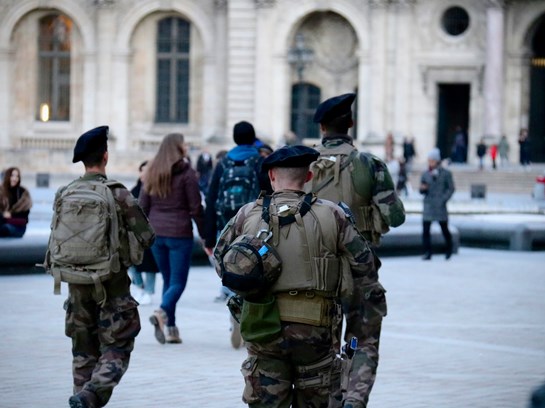
In the ten years since the declaration of its caliphate in 2014, Islamic State (IS) has lost the bulk of its territory, once spanning an area half the size of Great Britain, and seen its ability to mount sophisticated attacks on Western countries sharply diminished.
Despite these setbacks, it has remained the world’s deadliest militant organisation, expanding into new countries and broadening its recruitment base, particularly in Africa, Central Asia and South Asia. The first six months of 2024 have been marked by a dramatic increase in both attempted and successful attacks by the group, alongside a renewed focus on targeting Europe.
Much of Islamic State’s strategy has been dictated by geopolitical circumstances. The United States’ withdrawal from Afghanistan, followed by the expulsion of American troops from the African Sahel after a series of military coups, has created opportunities for IS to establish itself more firmly in these areas. As has the general decline of counterterrorism as a Western policy priority, with US and European attention monopolised by Russia’s invasion of Ukraine, growing competition with China and the Israel-Hamas war. IS has taken this opportunity to restore its capacity for external operations, most notably in Iran and Russia.
A January 2024 suicide attack on a memorial for an Iranian general killed at least 95 attendees. It is the deadliest terrorist attack in Iran since the foundation of the Islamic Republic in 1979. Two months later, a team of four Tajik nationals killed 145 people at the Crocus concert hall in Moscow. While not attributed to a specific branch by IS’s official media arm, both attacks are widely believed to have been executed by its Islamic State - Khorasan Province (ISK) offshoot in Afghanistan.
Formed in 2015 by a disaffected senior commander in the Pakistani Taliban, the group was initially composed of Afghan and Pakistani militants who had fought in the Syrian war, some of them originally aligned with al Qaeda. Since then, ISK has expanded its recruitment efforts into the broader region, with a particular focus on the former Soviet republics in Central Asia and the Caucasus. It now produces propaganda in more languages than any other IS affiliate. Its media has increasingly targeted the diaspora populations from these regions living in the West. Following the Moscow attack, an ISK spokesman called for supporters to carry out lone-wolf attacks on Christians and Jews in the US, Europe and Israel.
Since late 2023, counterterrorism officers have arrested militants of varying degrees of professionalism across Europe, many with links to ISK. Germany foiled a plot to bomb Cologne Cathedral in December 2023 and another, targeting the Swedish parliament in March 2024. Suspects in both cases cited ISK as providing direct instruction or inspiration for the plots. France has been increasingly targeted, with unofficial, pro-IS media calling for attacks on sporting events, including the Paris Olympic Games. President Emmanuel Macron revealed in March that ISK had already made several attempts to stage attacks in the country, while in May, a Chechen teenager was arrested in Saint-Etienne for planning to attack an Olympic football stadium.
Further attempts to stage attacks in Europe are highly likely, either by the group’s typical means of IEDs and armed assaults or potentially using explosive drones, which have featured heavily in recent pro-IS propaganda. UK police arrested a British militant building such a device in 2023. France is considered the most vulnerable country, given the wider availability of firearms there by regional standards and its staging of the Olympics. IS has a history of targeting major sporting events, such as the 2022 FIFA World Cup in Qatar. Smaller, lone-wolf attacks are also possible and notoriously difficult to predict.
Despite this, Europe’s robust counterterrorism capabilities and intelligence-sharing policies will continue to make it a challenging operating environment for militant groups. France has mobilised a security presence of unprecedented scale in advance of the Paris Games. Much pro-IS propaganda calling for attacks on specific targets is more often an attempt at scaremongering than a reflection of true capabilities, despite the media’s tendency to treat it as the latter.
Finally, it should be noted that the Moscow attack succeeded largely because warnings from the US specifying both the nature of the attack and the target were ignored, a mistake that European governments are highly unlikely to make. While the renewed threat from IS should not be taken lightly, factors such as these will moderate the risk of major organised plots and limit their chances of success.
Axco is the leading supplier of global insurance market information with over 55 years’ experience in researching and publishing industry intelligence on insurance and employee benefits. Its unique business model and methods of research have enabled the development of an extensive suite of products comprising in-depth reports, focused profiles, Q&A databases, intelligent questioning tools, and email services which are delivered to every corner of the globe.